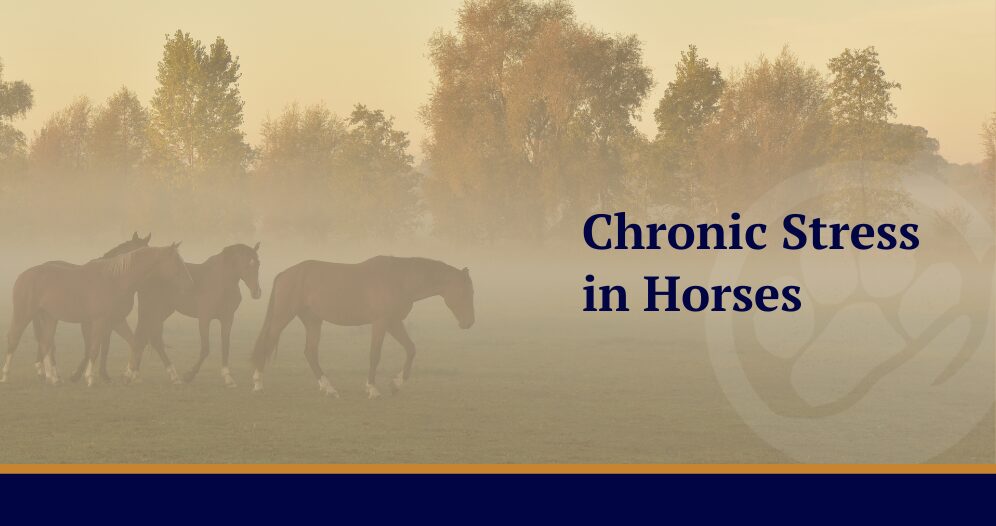
Horses experience a range of emotions— curiosity, contentment, sadness, and stress – just like us. And while horses are strong, chronic stress can take a significant toll on their health – both physically and mentally – just like us. The difference is, they can’t simply tell us how they’re feeling. Instead, they rely on body language to express their needs and emotions.
Understanding these subtle cues is what enables horse owners to respond, as needed, to keep their horses healthy and happy. Consider these signs from your horse that it might be stressed.
- Physical Symptoms: Stress may result in weight loss, lack of appetite, or digestive issues, like colic or ulcers. Additionally, chronic stress can wreak havoc on the immune system, so keep an eye out for frequent infections or illnesses.
- Behavioral Changes: Any changes in behavior, such as refusing to eat, isolating themselves, or becoming overly reactive, can be a red flag for stress.
- Performance: Stressed horses may struggle with stamina or focus, resist training, or show an unwillingness to work.
- Stereotypic Behaviors: These are repetitive behaviors that serve no purpose and may include cribbing, weaving, pawing, or stall walking.
What Causes Stress in Horses?
The reason behind your horse’s stress may be something as innocent as a change in scenery or as serious as an underlying health issue. Ultimately, identifying the root cause of stress is crucial to addressing it. Common stressors include:
- Environmental Changes: Moving to a new barn, changes in routine, or unfamiliar surroundings.
- Lack of Turnout or Social Interaction: Humans aren’t the only species who get bored! Horses are herd animals and need space to move around and interact with others, so be sure they’re getting enough time out of their stall.
- Changes in Exercise: Overtraining or inconsistent handling can leave your horse feeling uneasy and overwhelmed. On the other hand, insufficient exercise or extended periods of rest can also lead to anxiety and restlessness. Striking the right balance is key to your horse’s physical and mental well-being.
- Transportation: Traveling can be unsettling for horses, especially long journeys or cramped trailers. If you travel regularly, prioritize a regular feeding schedule and walk them regularly.
- Noise or Overstimulation: Loud sounds, unpredictable movements, or overcrowded environments can overwhelm them.
- Health Issues: Pain, discomfort, or illness often trigger stress.
- Dietary Problems: Irregular feeding schedules, lack of forage, or limited nutrients in their diet can all contribute to stress.
By paying attention to your horse’s needs and recognizing early signs of stress, you can create a happier, healthier life for your horse while strengthening the bond you share. Of course, any concerns about your horse’s behavior should be shared with your veterinarian.

